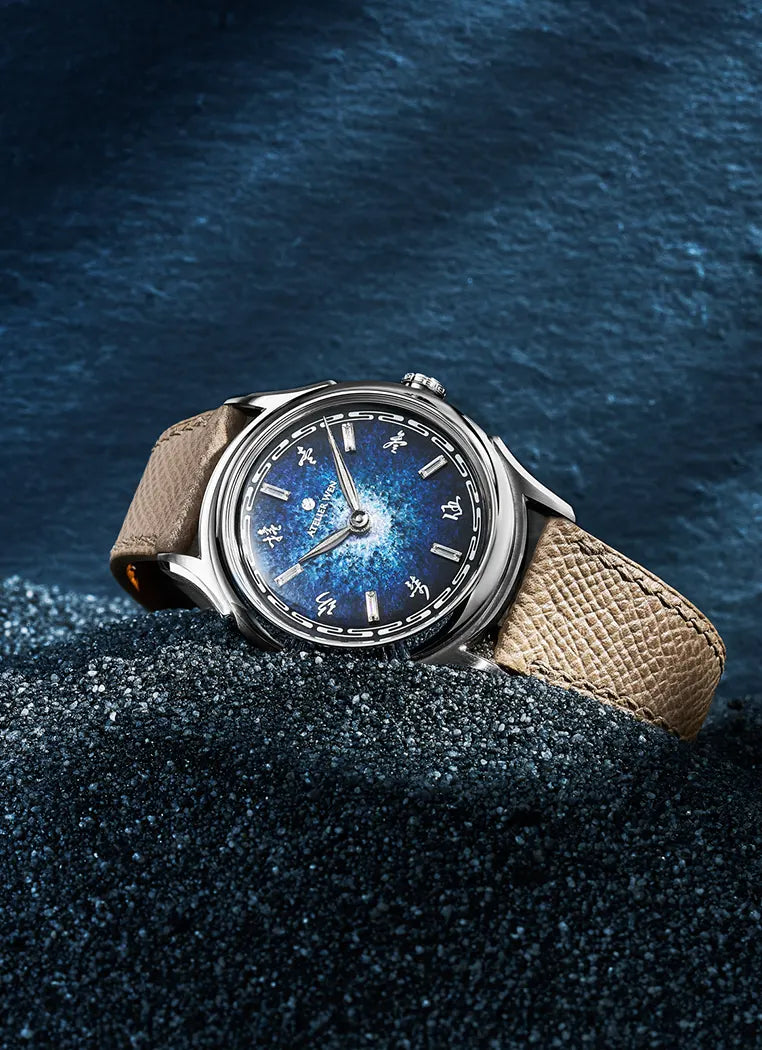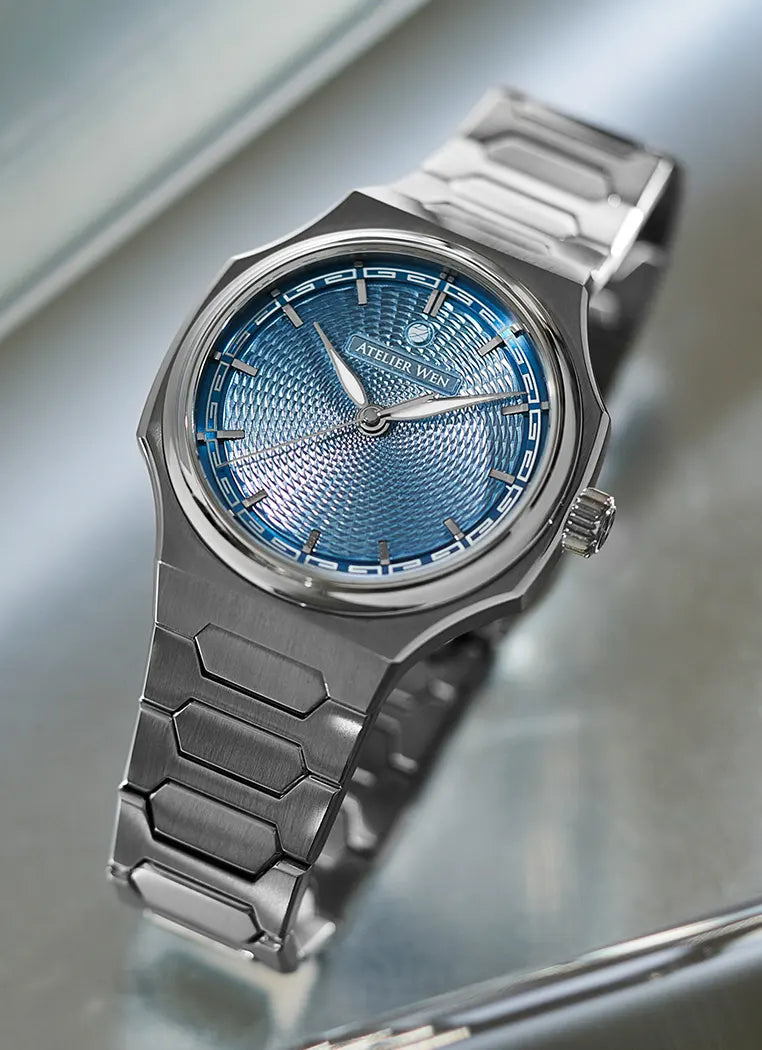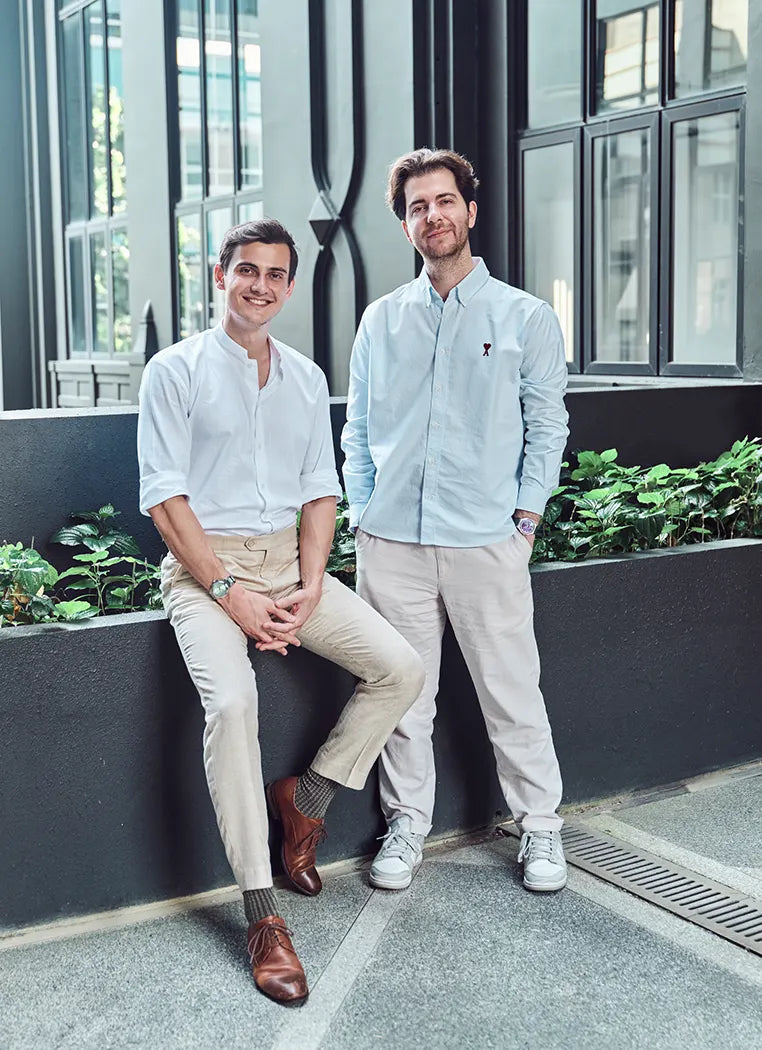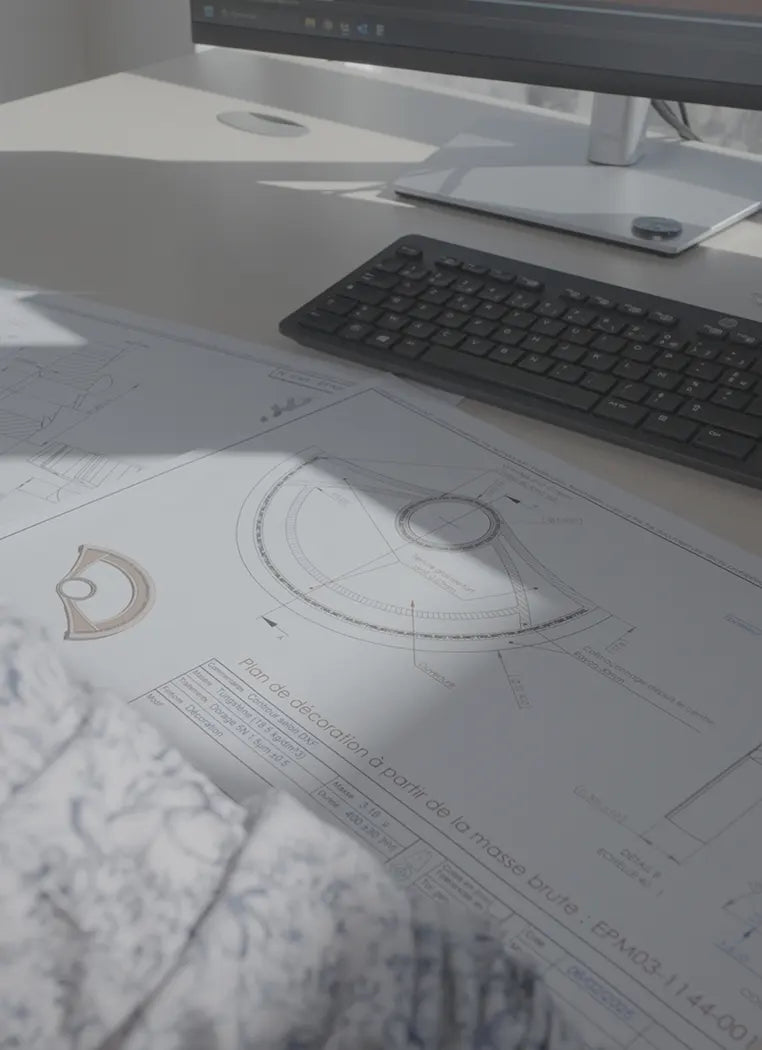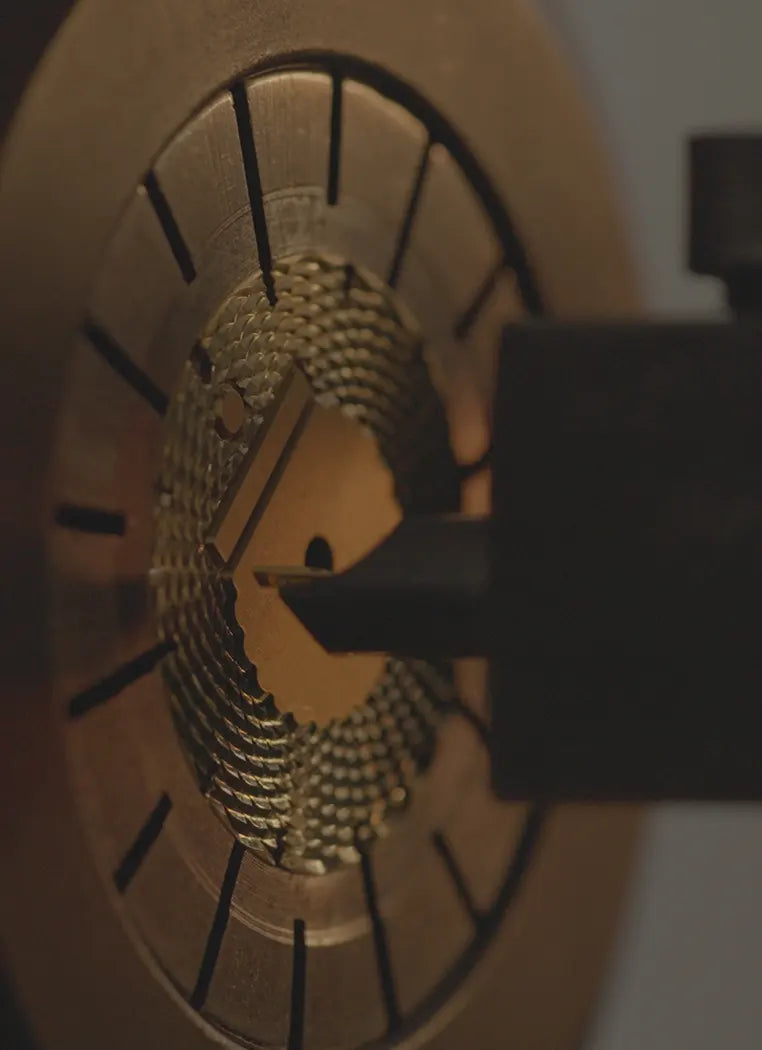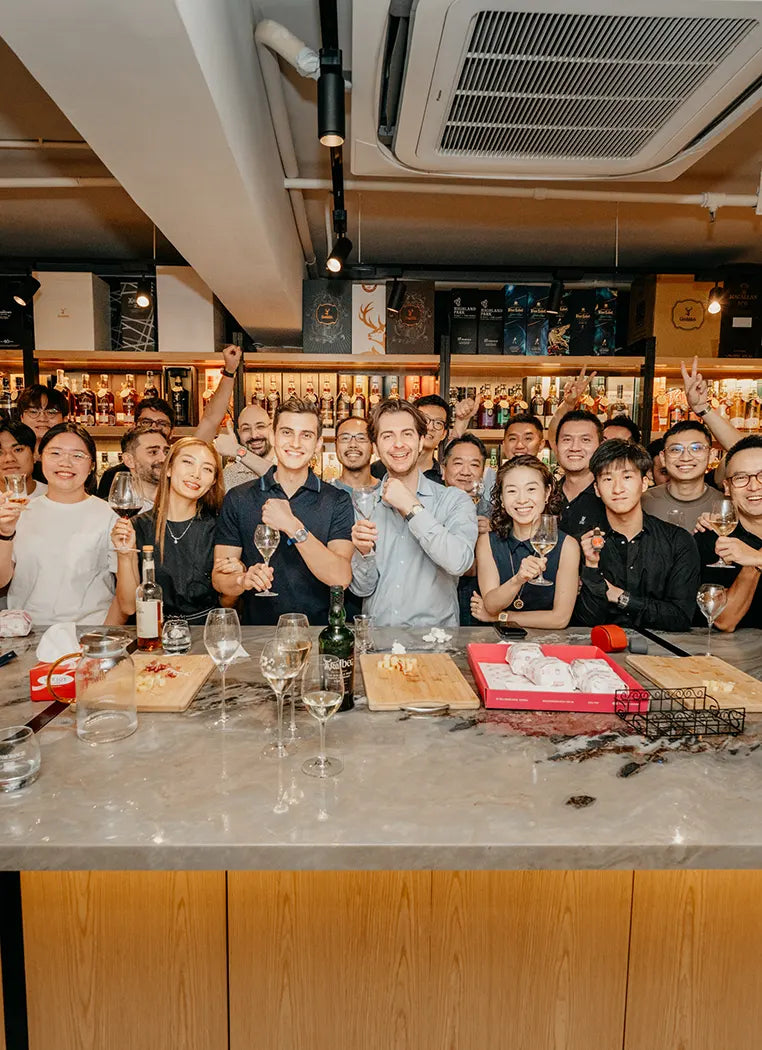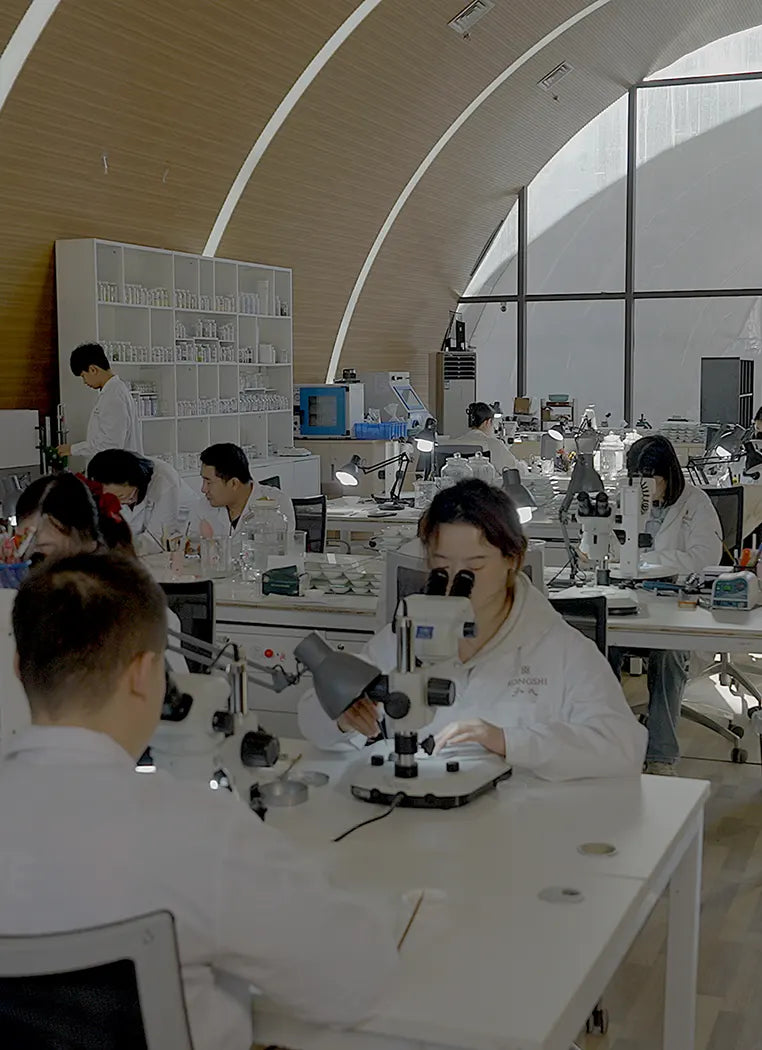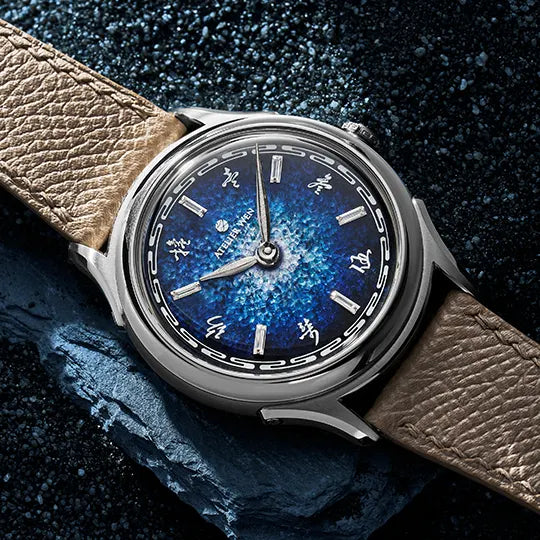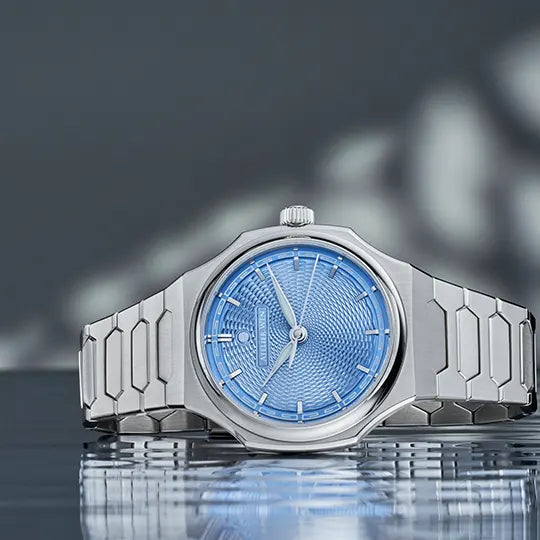Hello everyone,
We are today extremely excited to be unveiling our upcoming second series. Work on it started exactly two years ago, 8 designers contributed to the project and to this date more than 50 iterations have been produced. It represents a substantial amount of work, driven by our desire to go beyond the Porcelain Odyssey series and to get closer to our goal of producing modern Chinese watches of very high quality.
Two years is a rather long time, and, while our ambitious goals are the key rationale underlying this, there are some other factors which can help explain why this took so long. Hence, before we deep dive into design choices and specifications, we would like to give you a brief account of everything that happened between our Mainland China official launch and the beginning of prototyping (i.e. now).
Let's get started!
In our previous blog post, we discussed our launch in Mainland China, which, in a nutshell, required tremendous effort. It was akin to starting anew again which meant that we needed to re-do pretty much all we had carried out beforehand in the West. We were finally able to launch late April 2019 and while commercial performance was actually rather decent, when all the costs we incurred were taken into account, we just broke even. That’s by no mean shabby (in fact, many individuals who had launched brands in the country had told us beforehand that it would take years before we stop being loss-making), but, still, it was way below our outside-of-China results. This would then prove an issue because we had based all our plans, and thus all our budgets on achieving in Mainland China similar figures to what we generated in other geographies.
To simplify, we had three categories of expenses at that time: 1) manufacturing and day-to-day operational costs, 2) salaries (Hong Kong comes out very much on the pricey side!) and 3) new product development costs. Given how things unfolded in Mainland China and the rhythm at which we were selling watches outside of the country, we couldn’t afford to cover all three at the same time. We therefore decided to raise funds from private investors.
This was yet another extremely intense activity which, in a way, was a bit like a second job. But in all fairness, the fact that we had a clock ticking in the background made it thrilling and despite the numerous all-nighters at Tsui Wah we actually enjoyed it. We were regularly signing up angel investors (many of whom were actually customers!) bringing up small tickets and we had two larger professional funds which were supposed to bring in the rest of the sum sought.
Of course, things did not unfold as planned. One day, one of the larger investors resumed merger talks with a large Chinese conglomerate which meant that our deal was no longer the priority. We had known this investor for quite some time, and, as it is often the case with pre-seed rounds, he was mainly investing in us the founders rather than purely the Atelier Wen concept. It would have been impossible to find someone else like him in a short span of time, and this called for some serious thinking.
We were asking ourselves a lot of question, which could be summarised into just one: what shall we do? I will spare you the account of those strange days floating around in an overly air-conditioned Eric Kayser in Sai Ying Pun but, after a long and thorough thinking process, we came face to face with reality and decided the only sensible option was to leave Hong Kong and pause all our future development projects. It hurt a bit.
Wilfried went to Singapore and Robin headed back to France. The first thing we did after being back was to pay our suppliers. It was very straightforward and easy to do since we did not have other expenses to take care of anymore.
We decided to focus on stabilising the brand before resuming any new development projects. We had, back then, roughly 250 watches remaining as well as enough components to make an extra 70 of them. Since both the Hao and Ji are limited editions, we could not assemble any more of those and thus we did not really know what to do with those extra component. Xavier Markl from Monochrome was the first one to propose the idea of the highly-limited colourful Hao variations. That is how we came to create the Hao Green, the Hao Red and, finally, the Hao Purple (our favourite).

Gradually, sales volumes increased and, one day in July 2020, the very last Hao was sold. The Hao Green, Hao Purple, Ji and Hao Red all followed suit progressively. We are now fully sold out!
We paid our supplier, the brand is stabilised, we have liquidities once again… So we can resume working on new projects, right? Well, it wasn’t that straightforward. One Chinese case and dial maker was interested in expanding vertically and offered to acquire our brand. The offer wasn’t immense, yet we did consider for a time. However in end, our strong faith in the company and emotional attachment for it finally gave us the confidence to say no. More than ever, we were determined to make the second series a reality.
The second series
From early on, we knew we wanted to go for the sport chic style this time around - we wanted to do something slightly less dressy than the Porcelain Odyssey, without going all the way to an actual sport watch. The choice was obvious.
The second task we had ahead of us was that of finding a theme. For the first series, everything revolved around porcelain, but this time, we wanted something a little more conceptual and that could reflect throughout every aspect of the watch. We thought long and hard about this and decided in the end on a theme we thought could meet all those requirements — Chinese architecture. Indeed, architecture is tightly linked to the idea of urbanity which itself is very much aligned with a sport chic theme. What is more, this fits perfectly with our concept as a brand, the very angular and structural nature of watch design and given the very different codes of Chinese architecture, we thought it would allow us to build something truly original.
The Case and Bracelet
The case and bracelet, both crafted in 904L steel, are all reflections of different Chinese architectural characteristics. The sides of the case itself are inspired by the curved silhouettes of Chinese pagodas, while the top of the lugs also feature these gently curved angles reminiscent of roof structures. Furthermore, the central links of the steel bracelet feature the same hexagonal shapes found throughout many elements of Chinese architecture including pagodas and windows. This one will come with a custom deployment buckle and quick-release mechanism for easy interchanging.
The watch itself will be around 9.4mm thick and feature 10ATM water resistance and thanks to the layered construction of the case, will probably wear well under 9mm thick! The diameter will be of 40mm, so 1mm larger than the Porcelain Odyssey, though the dial opening will remain the same. The front and back will feature sapphire crystals with 5 layers of AR coating. Finally, we won’t go into every detail here, but ever the ayatollahs of surface finishings, you can expect a high level of detail and subtlety in finishings from us throughout!





The Dial
The central part here features a CNC guilloche pattern - that is to say it will be engraved, not stamped and will therefore present a high degree of finesse, depth and liveliness, approaching that of hand-made guilloche (yet allowing us to retail at still-accessible prices!). The pattern itself is a stylised representation of curved Chinese tiles arranged in a circular fashion (see picture). Please note that these are merely renderings and we had a hard time getting the guilloche pattern to render properly! The final result will be the guilloche we all know and love in the three colours represented below - steel grey, ice blue and classic salmon (we will find sexier names in due time).
The most striking design element, however is probably the structure of the dial itself. Indeed, similar to the so-called “Sunmao structure” (榫卯结构)of many ancient Chinese buildings that allow them to hold up through imbrication, without the use of any nails, here too the outer elevated ring is imbricated within the indexes which themselves are nested within the central guilloche area. Combined with the guilloche area of the dial, this unique structure will create a strong and gripping depth feeling, which will contrast nicely with the case’s thinness. This is, in our opinion, one of the most interesting embodiments of our traditional architecture inspiration.
The hands and indexes will be white gold-plated and the hands and pattern on the outer ring made with X1 Superluminova (get ready to glow!). Finally, you’ll notice one final – yet not least at all - playful touch with the date window at 7 o’clock with a red background and prefaced by the two characters for “today”, 今日. At the beginning, when our designers offered to position the date window at 7, we were adamantly convinced that it would lead to imbalance and fuzziness. Yet, when the first drawings were presented to us, the idea’s beauty became evident to us. For reasons we cannot really explain, it just “works”, in a magnificent way.






The Case-Back
The embossed figure of “Kunpeng” on our first series was a defining characteristic of the Porcelain Odyssey series and intentionally or not, has become part of our brand DNA. As such, we wanted to keep this feature, but we also heard the voices telling us that when a nice movement was involved, they wanted to see it! We were therefore faced with a dilemma… and this is how we solved it - a semi-solid, semi-display case-back!
In keeping with the architectural theme, the top part here will feature a lion’s head similar to those found guarding the entrances of notable ancient buildings. The bottom part on the other hand, will give a full view of the movement’s balance wheel as well as a fully-customized rotor (more on that soon!).




The Movement
For this sport chic watch, we wanted to optimize for thinness yet unfortunately there were no movements on the market thin enough to allow us to make our vision a reality (that is if you exclude Vaucher calibres, which are anyway way too costly for us). We entered some long and difficult negotiations with Dandong Peacock to tailor make for us a movement unlike any others. It was a tough sell for them because they know that our volumes are rather limited but given the positive exposure they got thanks to the Porcelain Odyssey series, they eventually agreed to deliver. For this series, we’ll therefore be using a highly-customised version of a Dandong automatic 3-hands movement, measuring only 3.4mm thick (vs 3.6mm for an ETA 2892, 3.9mm for a Miyota 9015 and 4.6mm for an ETA 2824), with 28,800BPH frequency and 41h power reserve. The movement will be finished to a level currently unheard of in the Chinese watch industry (and, dare we say, in the >$2,000 segment of the Swiss watch industry) and it will be adjusted to 5 positions and temperature, achieving an accuracy of at least +/-10s/day (though we are confident most movements will be below the 5 seconds/day bar).
Straps
For starters, the 904L steel bracelet above will be provided by default. On top of that however, we’ll also be providing FKM rubber and salmon leather straps as options in the colours of each dial and all equipped with quick release springbars and a highly customised deployment buckle as shown below.

We will be posting further updates on our blog regularly, so sign up to our newsletter if you don't wish to miss out! All our future announcements relating to the second series will also first break via our newsletter so all the more reason to sign up now! And if you know anyone who could be interested in following our adventure, do not hesitate to point them to us – we always welcome fellow watch aficionados.
At the same time, we also want all of you to be part of this adventure. So if you have any comments, ideas, suggestions or anything else you want to tell us, please do send us a message to contact@atelierwen.com. We reply to every email we receive.
Looking forward to hearing from you all!
Wilfried and Robin


